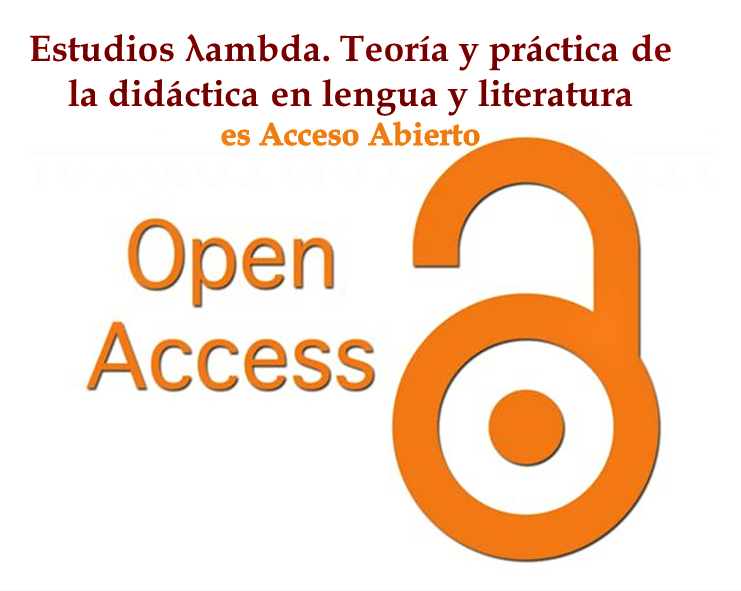Representations and Imaginaries in Reading Training of Students from UES: a Case Study
Representations and Imaginaries in Reading Training of Students from UES: a Case Study
DOI:
https://doi.org/10.36799/el.v1i1.15Keywords:
Representations, imaginaries, reading trainingAbstract
Social and humanistic research leads to human knowledge by analyzing their social structures, thoughts, expressions and everyday actions. The aim of this article is to show the progress of a case study in social and imaginary representations that have students about reading and reading training in Sonora State University (UES). The research, part of which this is a part) also investigates habitus reading and intends to explore, describe, explain, evaluate, and to influence the transformation, where necessary, of such imaginary. To accomplish this goal, we rely on the theoretical approaches of Castoriadis, Moscovici and Bourdieu. As methodology is concerned we use the focus group interview. The analysis units were two groups of students, one in Hermosillo and the other in the Benito Juárez Academic Unit. We checked that students were made up of young people from different educational programs, that they had already taken the subjects from the basic training related to reading and that they had taken the opportunity to apply the knowledge and skills acquired in these subjects in school performance. We believe, according to the present progress of our research, that much of the students’ imaginary and social representation about reading are social constructs forged from their interactions with other factors within specific context and time, and that they determine meanings and values of the act of reading.
Downloads
References
Araoz, E., Guerrero, P., Villaseñor, R., & Galindo, M. Estrategias para aprender a aprender. México: Pearson. 2008.
Berger, Peter y Thomas Luckman. La construcción social de la realidad. Argentina: Amorrortu, 1968.
Bourdieu, Pierre. Cosas dichas. Argentina: Gedisa. 1987.
Bourdieu, Pierre. El sentido práctico. México: Siglo XXI. 2007.
Carlino, Paula. Escribir, leer y aprender en la universidad. Argentina: Fondo de Cultura Económico, 2005.
Castoriadis, Cornelius. La institución imaginaria de la sociedad 1. Barcelona: Tusquets Editores, 1983.
Domigo Argüelles, Juan. Letra muerta. México: Océano, 2006.
Domingo Argüelles, Juan. Ustedes que leen. México: Océano, 2006.
Hernández Monroy, Rosaura y María Emilia González Díaz. Prácticas de la lectura en el ámbito universitario. México: Universidad Autónoma Metropolitana. 2009.
Lai, Jung-Yu and Chih-YenChang. User attitudes toward dedicated e-book readers for reading. Taiwan, 26 de octubre de 2010. Journal.
Moscovici, Serge. Psicoanálisis, su imagen y su público. Buenos Aires: Editorial Huemul S. A. 1979.
OCDE. “Programa internacional de evaluación para los alumnos (PISA). PISA 2012 resultados.” s.f. 14 de septiembre de 2014. http://www.oecd.org/centrodemexico/medios/programainternacionaldeevaluaciondelosalumnospisa.htm
Quintana, Hilda. Comprensión Lectora. Consultado en diciembre de 2006 de: http://www.univerxity.com/aspSmartUpload/2111200410.40.30.doc
Robles, Alejandra. Imaginarios e identidades. La novela gay en México (1979 a 1983). Avance de la tesis doctoral Doctorado en Humanidades. Universidad de Sonora. 2014.
Rodríguez Palmero, María Luz. (2011). La teoría del aprendizaje significativo: una revisión aplicable a la escuela actual. IN. Revista Electrònica d’Investigació i Innovació Educativa i Socioeducativa, V. 3.1 (2011): 29-50. Consultado en 16 de septiembre de 2014. http://www.in.uib.cat/pags/volumenes/vol3_num1/rodriguez/index.html
Simon, Eric. “Electronic Textbooks: A Pilot Study of Student E-Reading Habits.” Future of Print Media Journal. (2001): 1-5. http://ppintaal.home.xs4all.nl/e_documentatie/e-textbooks-01.pdf
Downloads
Published
How to Cite
Issue
Section
License
Copyright (c) 2019 Patricia del Carmen Guerrero de la Llata, Sofía Amavizca Montaño

This work is licensed under a Creative Commons Attribution-NonCommercial-NoDerivatives 4.0 International License.
El autor o autores conservan en todo momento sus derechos morales y patrimoniales sobre la obra; la obra no se puede alterar, transformar o ampliar; siempre debe reconocerse la autoría del documento referido. Ninguna de las modalidades de los documentos publicados en Estudios λambda. Teoría y práctica de la didáctica en lengua y literatura tienen fines comerciales de naturaleza alguna.



